Research Papers/Articles
Nature of Employment and Outcomes for Urban Labor: Evidence from the Latest Labor Force Surveys in India
2022
Author(s): Roy D, Saroj S, Pradhan M
The paper uniquely assess the extent of job turnovers for urban workers and falling into unemployment at high frequency based on TOE. Analysis of urban panel after accounting for unobserved worker level factors captures the extent of fall in income due to job switching and loss of employment. Results indicate significant potential for poverty if worker is not socially protected, engaged in distress entrepreneurship or as casual labor.
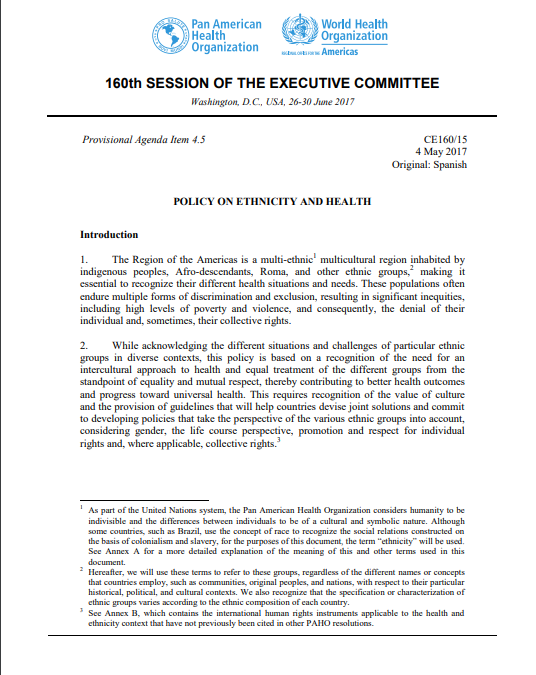
Policy on Ethnicity and Health
2017
Author(s): Pan American Health Organization
This policy is framed in the context of major global agreements and initiatives that recognize the need to guarantee respect for individual and, when applicable, collective rights and the health systems of traditional peoples, and to refocus health services by adopting an intercultural approach to advance with equity and social justice toward the enjoyment of the highest attainable standard of health and other human rights by indigenous peoples, Afro-descendants, Roma, and other ethnic groups.
‘Land Belongs To The Community’: Demystifying The ‘Global Land Grab’in Southern Sudan
2011
Author(s): Deng DK
This paper presents preliminary data concerning large-scale land acquisitions in two of the ‘Green Belt’ states of Southern Sudan: Central Equatoria and Western Equatoria. It explores the concept ‘land belongs to the community’; a statement communities have take up in their demand for greater involvement in decision-making regarding community lands.

This publication focuses on the present scope and trends of international policies and activities related to the protection and preservation of traditional knowledge. The publication is based on a series of educational events organized and conducted by LIENIP.
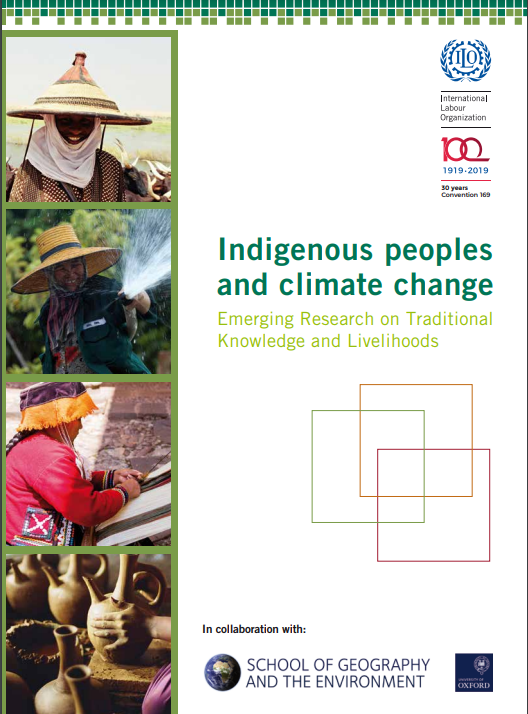
Indigenous Peoples and Climate Change: Emerging Research on Traditional Knowledge and Livelihoods
2019
Author(s): The International Labour Office
The practice of traditional knowledge in the everyday lives of indigenous women and men is yet to be adequately understood, however, with many research gaps confronting policy-makers. Prominent among these is an understanding of the interplay of traditional knowledge systems, rooted in indigenous ways of life, cultural approaches and traditional occupations, with the transformations being experienced in societies, economies, institutions, technologies and the climate.
Technology Transfer for Agriculture Growth in Africa
2002
Author(s): Moussa S Z
The paper discusses the challenges for agricultural growth and evaluates the development assistance that was made by donors to the agricultural sector in Africa in comparison to the sector’s performance and its growth during the last two decades.
Free, Prior and Informed Consent: Applying The Principle To On-the-ground Action
2023
Author(s): Penados Dr. Filiberto
This publication explores the lessons we are learning from the Indigenous Peoples’ Livelihoods and Climate Resilience Programme, supported by the Swedish International Development Cooperation Agency (Sida).
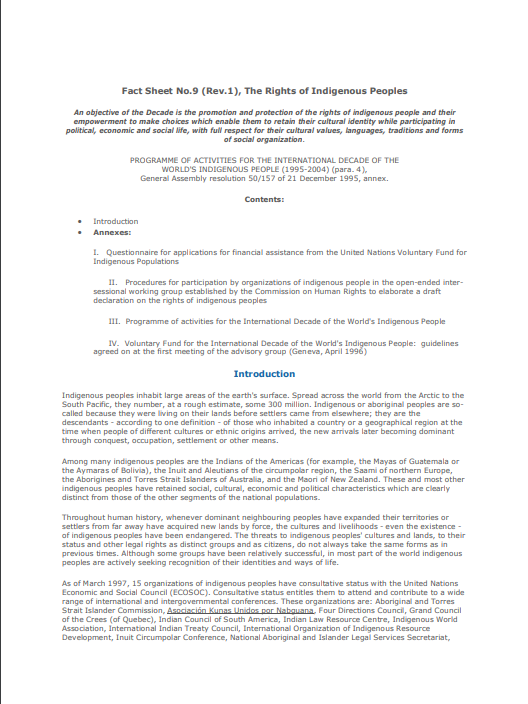
An objective of the Decade is the promotion and protection of the rights of indigenous people and their empowerment to make choices which enable them to retain their cultural identity while participating in political, economic and social life, with full respect for their cultural values, languages, traditions and forms of social organization
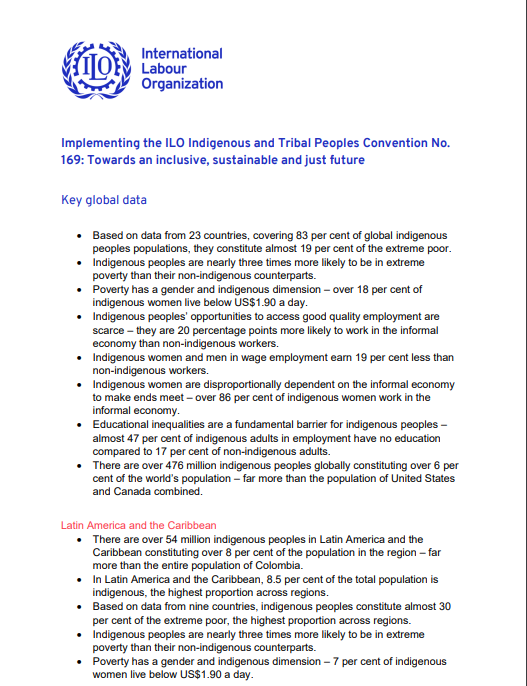
Implementing the ILO Indigenous and Tribal Peoples Convention No. 169: Towards an Inclusive, Sustainable and Just Future
2020
Author(s): Dhir RK
Educational inequalities are a fundamental barrier for indigenous peoples – almost 47 per cent of indigenous adults in employment have no education compared to 17 per cent of non-indigenous adults. There are over 476 million indigenous peoples globally constituting over 6 percent of the world’s population.
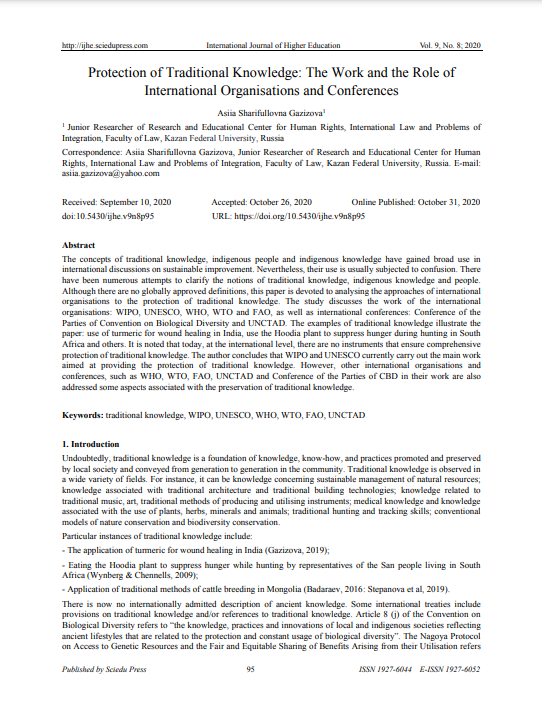
Protection of Traditional Knowledge: The Work and the Role of International Organisations and Conferences
2020
Author(s): Gazizova AS
It is noted that today, at the international level, there are no instruments that ensure comprehensive protection of traditional knowledge. The author concludes that WIPO and UNESCO currently carry out the main work aimed at providing the protection of traditional knowledge. However, other international organizations and conferences, such as WHO, WTO, FAO, UNCTAD and Conference of the Parties of CBD in their work are also addressed some aspects associated with the preservation of traditional knowledge.



